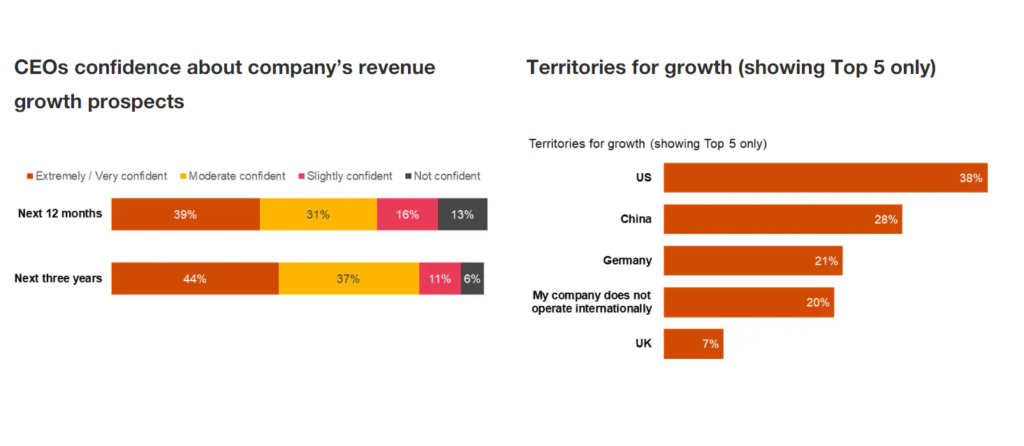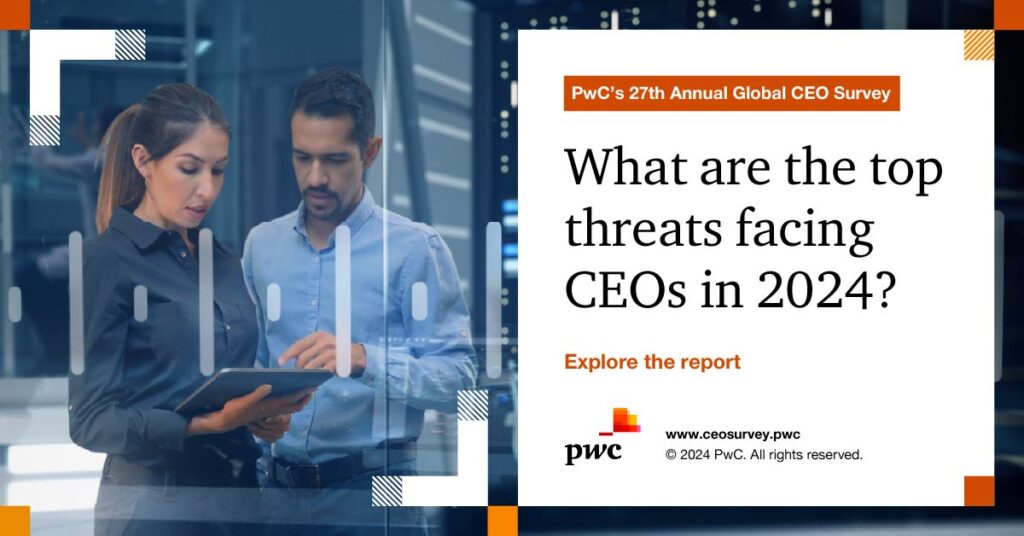Key Takeaways from the Latest Global CEO Survey
As the business world continues to navigate the complexities brought on by the pandemic, geopolitical tensions, and rapid technological advancements, the insights from the latest Global CEO Survey, conducted by PwC, offer a revealing look into the evolving priorities and strategies of today’s leaders. This year’s survey highlights key trends that are shaping the future of corporate leadership and strategy. Here, we delve into the most significant takeaways that can help inform business practices and decision-making in a constantly changing environment.
1. Sustainability Takes Center Stage
The latest findings emphasize a pronounced shift toward sustainability among global CEOs. Over 80% of executives surveyed indicated that sustainability is now a critical aspect of their business strategies. Companies are increasingly adopting Environmental, Social, and Governance (ESG) practices to not only enhance their reputation but also to meet growing consumer expectations for ethical operations. The focus on sustainability is more than a trend; it reflects a fundamental change in how businesses operate. A commitment to sustainability is seen as a driver of long-term profitability and resilience, aligning with investor interests and regulatory pressures alike .
2. Digital Transformation: A Non-Negotiable
Digital transformation has accelerated at an unprecedented pace, and CEOs recognize that it is no longer an optional investment but a necessity for survival. Nearly 75% of leaders reported plans to increase their investments in digital technologies, particularly in areas like artificial intelligence, data analytics, and automation. This shift is not just about improving efficiency; it’s also about enhancing customer experience and creating innovative products and services. CEOs are keenly aware that embracing digital tools and platforms will be essential for staying competitive in an increasingly digital marketplace .
3. Prioritizing Employee Well-Being and Talent Management
Employee well-being has emerged as a top priority for CEOs, with about 66% of leaders focusing on mental health initiatives and overall wellness programs. This shift is largely driven by the recognition that a healthy workforce contributes to higher productivity and lower turnover rates. Companies are also investing in talent management strategies to attract and retain a diverse workforce that can adapt to the fast-paced changes in the market. This focus on well-being and talent development reflects a broader understanding of the interconnectedness of employee satisfaction, company culture, and business performance .
4. Navigating Geopolitical and Economic Uncertainty
With geopolitical tensions and economic instability looming large, CEOs express significant concern over the impact these factors may have on their business operations. The survey reveals that 57% of executives feel uncertain about the global economic outlook, prompting many to adopt a cautious approach. This includes diversifying supply chains and exploring new markets to mitigate risks associated with geopolitical disruptions. By proactively addressing these uncertainties, leaders aim to enhance their organizations’ resilience and adaptability in the face of challenges .

5. Innovation and Agility: The Keys to Future Success
Innovation remains at the forefront of CEO agendas, with 68% of leaders believing that their organizations must innovate rapidly to stay relevant. The emphasis on agility has never been more pronounced, as businesses strive to pivot quickly in response to market demands. Many CEOs are fostering a culture of collaboration and creativity, encouraging teams to experiment and embrace new ideas. This agile mindset not only allows organizations to respond to immediate challenges but also positions them for long-term growth and success in an unpredictable environment .
Conclusion: A Path Forward
The insights from the latest Global CEO Survey underscore the dynamic landscape in which today’s leaders operate. From a strong focus on sustainability and digital transformation to prioritizing employee well-being and navigating geopolitical challenges, CEOs are rethinking traditional business practices to adapt to the complexities of the modern world. As they move forward, these leaders must continue to embrace innovation and agility, ensuring their organizations are prepared to thrive in an ever-evolving marketplace.
For a more in-depth exploration of these findings and additional insights, you can read the full report from PwC here.
References
The Economist. (2024). Geopolitical Tensions and Business: A CEO’s Dilemma. Retrieved from The Economist
PwC. (2024). Global CEO Survey 2024. Retrieved from PwCBusiness Insider. (2024). Key Insights from the CEO Survey. Retrieved from Business InsiderHarvard Business Review. (2024). The Future of Leadership. Retrieved from HBRMcKinsey & Company. (2024). The State of Organizations: Insights from the CEO Perspective. Retrieved from McKinseyDeloitte. (2024). 2024 Global Human Capital Trends. Retrieved from DeloitteForbes. (2024). The Impact of Global Events on CEO Confidence. Retrieved from Forbes




Your article helped me a lot, is there any more related content? Thanks!
ipamorelin prescription
References:
what Happens when you stop taking cjc-1295/ipamorelin
Thank you for your sharing. I am worried that I lack creative ideas. It is your article that makes me full of hope. Thank you. But, I have a question, can you help me?
rob riches steroids
References:
http://volleypedia.org/index.php?qa=user&qa_1=closedill93